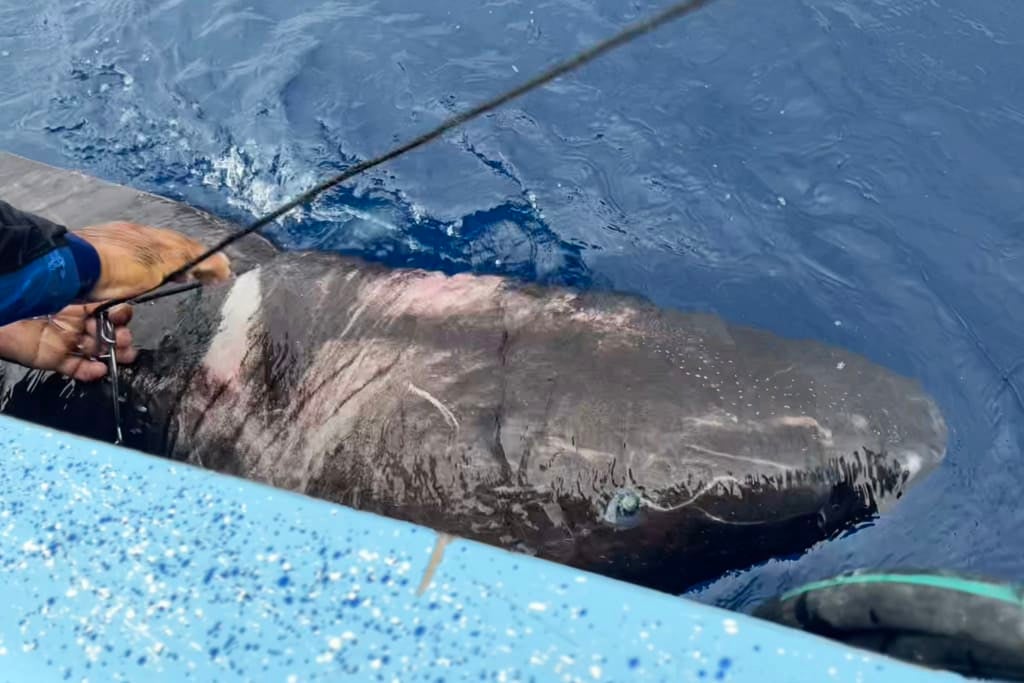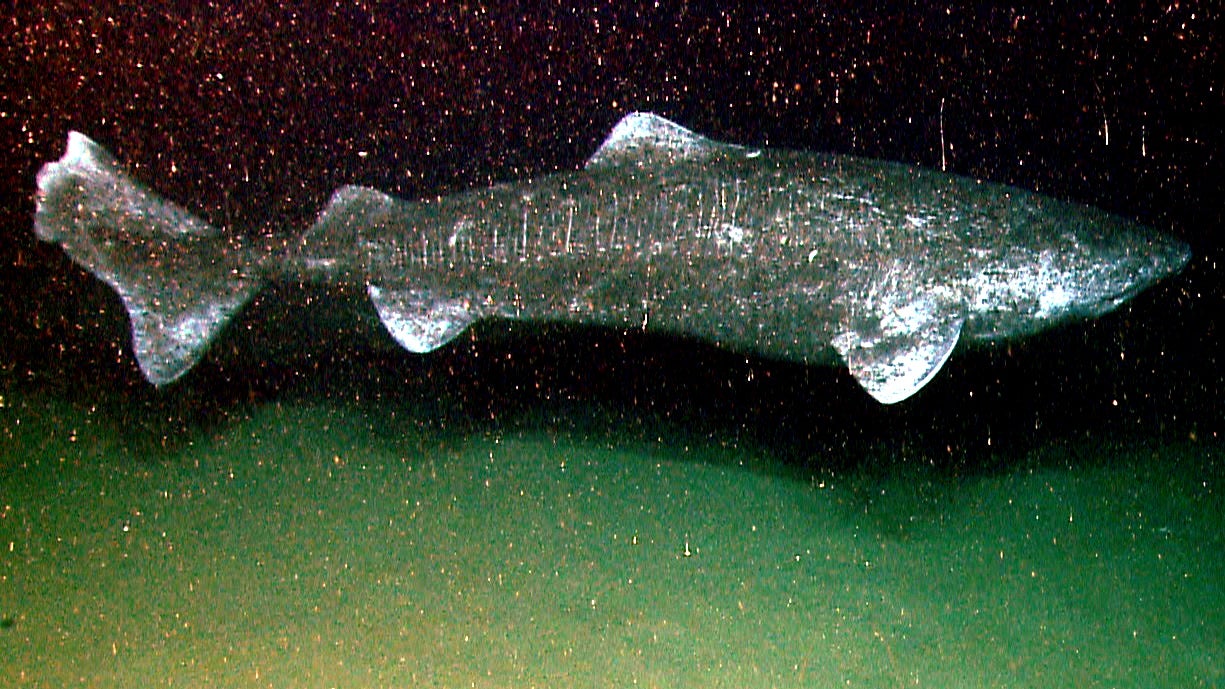Mystery as Greenland shark found in Caribbean, thousands of miles from Arctic home
Experts say discovery suggests species could be found all over the world in deep cold waters

A Greenland shark has stunned researchers after being found in the western Caribbean Sea, over 4,000 miles from the Arctic waters the species normally calls home.
A Florida International University student, Devanshi Kasana, was working with fishermen tagging tiger sharks off the coast of Belize, home of the world’s second longest barrier reef when she spotted a shark that looked very unusual.
Ms Kasana said the discovery was made after a long night of fishing. The weather had deteriorated and storm clouds were gathering on the horizon.
The team did a last check of their lines and found that on the end of one, wasn’t a tiger shark, but what they described as "a rather sluggish creature".
"It looked old – ancient, even – and more like an elongated, smooth stone that had sprung to life," the team said in a statement.
"It had a blunt snout and small pale bluish coloured eyes".

The appearance of the shark - normally found in waters around Greenland and Iceland - and its location, led the scientists to think it could be a member of the sleeper shark family.
“At first, I was sure it was something else, like a six-gill shark that are well known from deep waters off coral reefs,” said Ms Kasana.
“I knew it was something unusual and so did the fishers, who hadn’t ever seen anything quite like it in all their combined years of fishing.”
Kasana texted a photo to her PhD advisor Demian Chapman, the director of Sharks & Rays Conservation Research at Mote Marine Laboratory & Aquarium.
Dr Chapman’s response caught her off guard. He said it wasn’t a six-gill. But, it looked a lot like a Greenland shark (Somniosus microcephalus).
After conferring with several Greenland shark experts, the final determination was it was definitely in the sleeper shark family – and because of its large size, was most likely a Greenland shark or a hybrid between the Greenland shark and Pacific sleeper shark (Somniosus pacificus).
Little is known about the Greenland shark, largely due to its preferred habitat of cold deep ocean water. However, the species is famous for being long-lived with individual sharks living for over 400 years.
The research team said there was now speculation that Greenland sharks could be found all over the world, living in tropics at greater depths than they would in the Arctic, in areas where they can still find their preferred low temperatures.
The waters around Glover’s Reef Atoll form a steep slope which ultimately drops to 9,500 feet (2,900 metres) deep, which means there is the cold water needed for a Greenland shark to thrive.
“I am always excited to set my deep water line because I know there is stuff down there that we haven’t seen yet in Belize, but I never thought I would be catching a Greenland shark,” said Omar Faux, one of the fishermen in Belize.
“My crew and I are looking forward to future deep-water expeditions with Dr Chapman and his team.”
The research is published in the journal Marine Biology.
Join our commenting forum
Join thought-provoking conversations, follow other Independent readers and see their replies
Comments
Bookmark popover
Removed from bookmarks